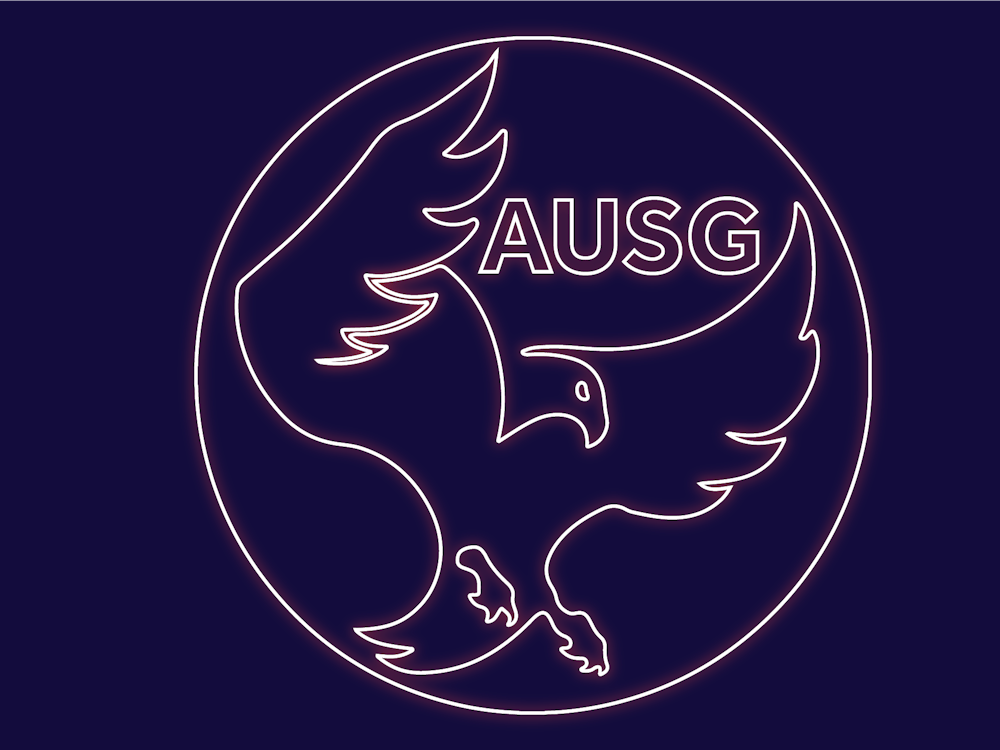Student Government Senators Lauren Cwik and Nika Gogishvili-Matthews passed Resolution 17-006 on Feb. 6, which advocates for expanding American University’s current indoor mask mandate from KN95s, N95s and KF94s to include three-ply surgical masks.
The proposal to expand the mask mandate prompted controversy among the Undergraduate Senate. Senators amended the initial resolution to add that they urge AU to expand access to “high quality NIOSH (National Institute for Occupational Safety and Health) certified KN95 and N95 masks.”
After a debate over the amendment, the Senate agreed to advocate for expanding access to KN95s, and the line specifically discussing this expansion states, “Therefore, be it further resolved, that the Undergraduate Senate urges American University to expand access to high quality NIOSH certified KN95 and N95 masks, AND/OR expand their masking policy to include the 3-ply surgical masks as an accessible, affordable option for students.” Adding the “and/or,” essentially gives AU the choice to expand access to all of the masks or not.
According to undergraduate senators in favor of expanding the mask mandate, KN95s and N95s are cost-prohibitive for some low-income students. The resolution mentions that the cost of 50 KN95s, $39.99, is more than double the cost of 100 surgical masks, $15.99. Furthermore, as Omicron cases decline, senators for the Resolution argued that surgical masks are now much safer to wear.
Senators who opposed the resolution said expanding the mandate to include other masks does not get to the heart of the problem, which Brian Kramer, a senator for the class of 2023, said is the University’s execution of the mandate.
“It’s not the mask themselves students are frustrated with,” said Kramer, one of the four senators in opposition to the mandate. “It’s the implementation that students don’t like … [The mandate] was announced too suddenly, which gave no time for a proper response, and the masks given out were fake.”
Jackson Beauregard, a senator for the class of 2023 and opponent to the resolution, said that while the University’s implementation of surveillance testing is “better than nothing,” it is still not a sufficient response to the pandemic.
“The University should be going above and beyond, especially when it prides itself on being changemakers,” Beauregard said.
Beauregard added that the University “shouldn’t be sacrificing safety for cost” in terms of spending more money on more expensive masks, and said that the resolution should’ve “advocated for KN95s.”
Despite the mixed responses to the mandate, the four senators in opposition to the resolution said their goal was to promote safety across the University community.
“When it comes to public health, sometimes you need to go against what the majority of people think,” Senator-at-large Ryan Hale said. “Even if [the mandate] is not necessarily favored, it’s there for public health. The requirement is there to help AU’s most vulnerable communities.”
All senators who voted against the resolution said it would be harmful to members of the AU community who are high-risk for severe diseases, such as immunocompromised students, older staff and even those outside of the University’s community.
“Ultimately, public health should be determined by data and science,” said Senator Jackson Boaz, who also opposed the resolution. Boaz added that he felt “saddened by the rhetoric being used talking about the effectiveness of masks and spreading misinformation about the practical usage of masks.”
While the senators opposed to the resolution maintained that the Senate’s focus should remain on expanding access to KN95s, Boaz said that the senators in favor of the bill had “important” concerns.
“We need an equitable solution for everyone, especially low income students,” Boaz said.
Editor's Note: This story has been corrected to update an inaccurate quote. Boaz said "especially" low income students, not "even."





